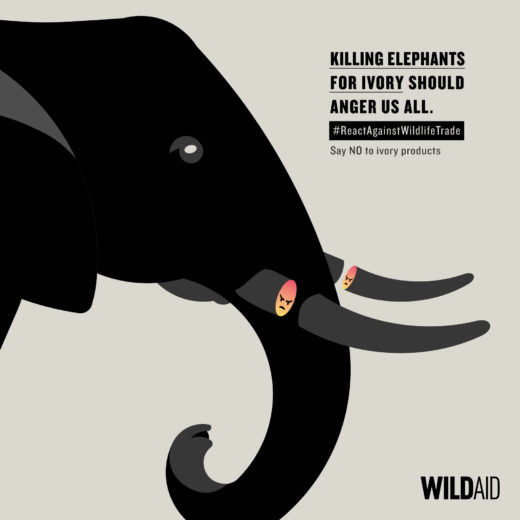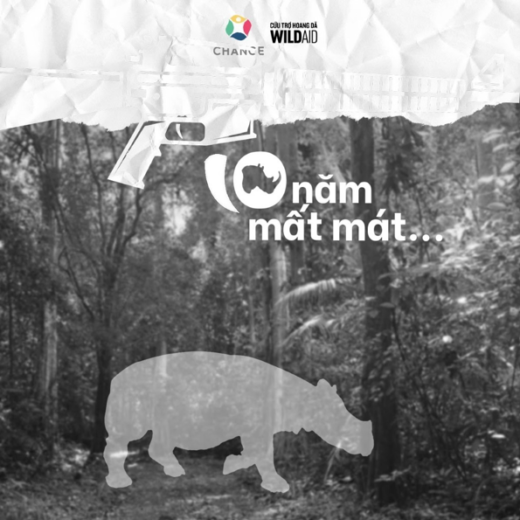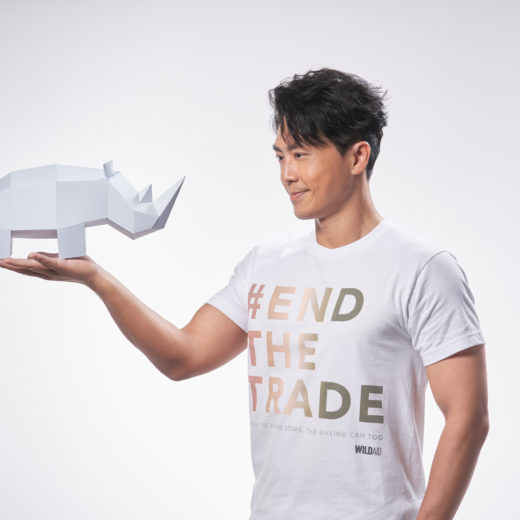
HRH and sports icons ask consumers to say no to rhino horn and ivory
Visit our Facebook Album for behind the scenes photos from the PSA shoot.
The Duke of Cambridge, David Beckham, and Yao Ming met in London today to film two public service messages on illegal wildlife products. The messages focus on reducing demand for both rhino horn and ivory and will air globally, with targeted outreach in China and Vietnam, later this year as part of WildAid’s demand reduction campaign and the Royal Foundation’s United for Wildlife Collaboration.
The Duke of Cambridge said, “At the root of the illegal wildlife trade is the demand for products that require the deaths of tens of thousands of these animals every year, pushing them further towards extinction.”
The ivory trade claims the lives of an estimated 25,000 elephants annually and according to South Africa’s Department of Environmental Affairs, as of September 5 at least 618 rhinos were killed for their horns in 2013, which may break last year’s record of 668 poached rhinos later this month.
“When I learned of the current poaching levels in Africa, I immediately agreed to help get this message out,” said David Beckham. “It is shocking to think that we could lose these animals from the wild in our lifetimes.”
Following a respite in the 1990s, demand for rhino horn is rising with booming economies in Vietnam and China. In China a “one off” legal sale of ivory in 2009 has stimulated a renewed market triggering increased poaching in Africa. Recent surveys indicate a large portion of China’s population is unaware of the death toll to create these products, yet a greater number of residents support government enforced bans.
“We must reduce demand if we are going to save these animals,” said former NBA Star Yao Ming, an iconic figure in China. “We made tremendous progress reducing demand for shark fin soup through a similar campaign and a government ban at banquets is also helping. Traders say shark fin demand has been cut by 50% or more. I hope we can do the same for ivory and rhino horn.”
Yao spearheaded the shark fin initiative with WildAid and launched the “Say No to Ivory and Rhino Horn” campaign earlier this year in partnership with WildAid, African Wildlife Foundation, and Save the Elephants. He is returning to Africa tomorrow to finish filming “The End of the Wild”, a documentary scheduled for release in 2014.
“The Duke of Cambridge and David Beckham are both highly respected in Asia, where the word needs to go out. Bringing them together with Yao underlines the need for a global effort to end demand for these products and support conservation efforts on the ground,” said Peter Knights, WildAid Executive Director. “This trade not only threatens these iconic animals with ruthless slaughter, it undermines African economies and tourism revenues while fueling corruption and funding organized crime and even terrorist activity.”
WildAid is the only organization to solely focus on reducing the demand for wildlife products. Working with hundreds of Asian and Western celebrities and business leaders, including Jackie Chan, Leonardo DiCaprio, and Richard Branson. WildAid’s public service messages and educational initiatives reach hundreds of millions of people a week in China alone through donated media space.
Stay in touch and get the latest WildAid updates.
SIGN UPAbout WildAid
WildAid is a non-profit organization with a mission to protect wildlife from illegal trade and other imminent threats. While most wildlife conservation groups focus on protecting animals from poaching, WildAid primarily works to reduce global consumption of wildlife products such as elephant ivory, rhino horn and shark fin soup. With an unrivaled portfolio of celebrity ambassadors and a global network of media partners, WildAid leverages more than $308 million in annual pro-bono media support with a simple message: When the Buying Stops, the Killing Can Too.
Journalists on deadline may email communications@wildaid.org


